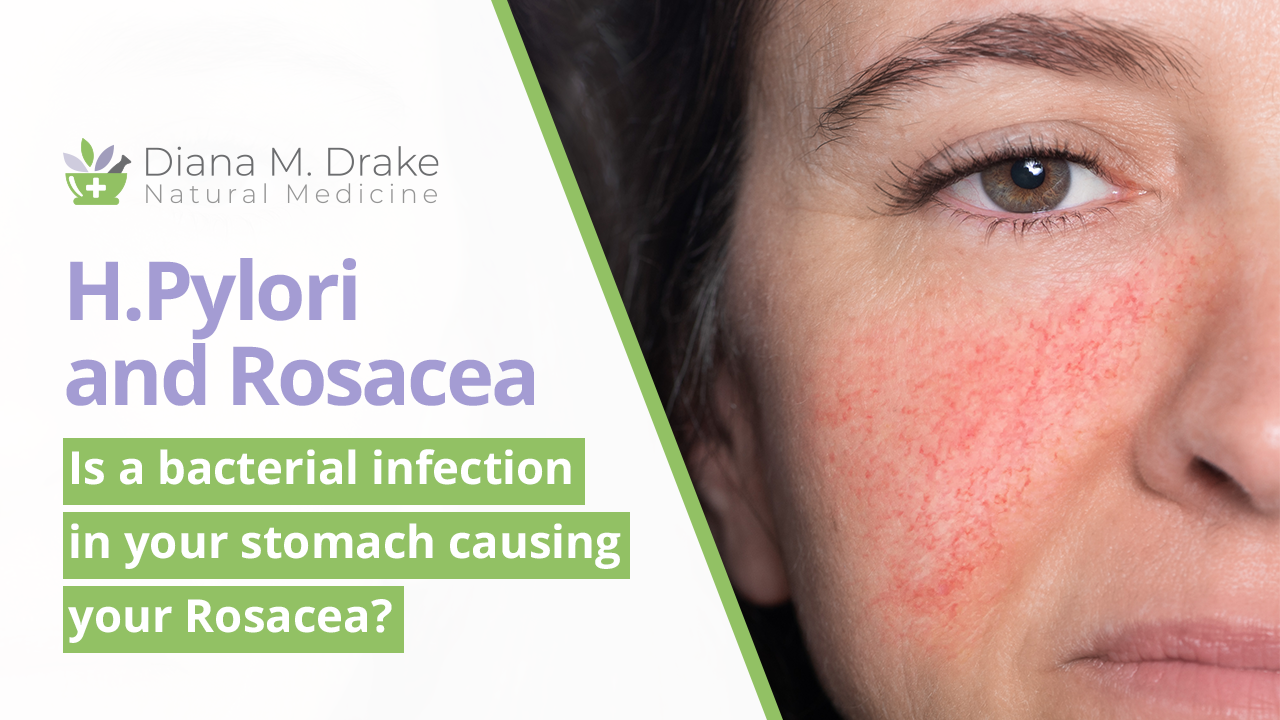H.Pylori and Rosacea – is a bacterial infection in your stomach causing your Rosacea?
By Diana Drake - October 6, 2022
Did you know that about 30 percent of the population is dealing with Helicobacter Pylori?
This is a bacterial infection that leads to gastric issues but also other unwanted effects. In fact, plenty of research has proven the connection between this infection and some other medical conditions.
These include migraines, iron deficiency anaemia, and Parkinson’s disease. However, there have been some recent findings that have shown a connection between H. Pylori and the skin condition Rosacea.
Today we are going to talk through the subject and establish a connection between these two conditions.
What are these?
Rosacea is an inflammatory disease that tends to affect the central part of the face. This is characterised by redness and soreness, potentially acne, itchiness, and general discomfort on the skin.
On the other hand, H Pylori is a type of bad bacteria, and it is the reason for the creation of gastrointestinal ulcers, chronic gastritis, and gastric cancer. Since it has been shown in recent discoveries that the H Pylori treatment can have an excellent impact on Rosacea acne, we begin to see how these are connected.
Methods and results
If the presence of H Pylori is connected to Rosacea, then all individuals that are dealing with this skin condition should get tested for H.Pylori and a full gastrointestinal profile as well.
Seeing what’s going on with the microbiome and checking for this infection is incredibly important if you hope to get to the root cause of your facial rash. Understanding the relationship of rosacea to the gut, you can now understand why treating rosacea topically does not work.
There are many additional triggers of Rosacea that will need to be managed as well. These include stress, exposure to sunlight, alcohol, spicy food, and even some cosmetics.
Western medical treatments for rosacea include the use of a low dose antibiotic and a steroid cream on the skin. Though it might seem that an antibiotic addresses the root cause (being the H. Pylori Infection) most people that stop the antibiotic, experience a return in their rosacea.
This may be because putting an antibiotic into an already stressed microbiome is actually doing more harm than good. From a natural medicine perspective, we want to heal the microbiome rather than deplete it.
Luckily, there are plenty of beautiful herbs and natural ingredients that can support microbiome health without completely wrecking the delicate ecosystem in the gut.
Some ingredients that maybe beneficial in reducing the load of H. Pylori Bacterial Infection include:
- Grapefruit: Capable of eliminating Helicobacter Pylori directly. These data make it possible to identify GSE as the ideal natural remedy to eradicate the bacterium from the gastric mucosa.
- Caprylic Acid: A medium chain fatty acid found in coconut oil that contains natural antibacterial and antimicrobial properties.
- Calcium: Chronic H. pylori infection may alter calcium absorption, therefore supplementing with calcium is beneficial while dealing with this condition.
In addition to focusing on reducing the H. Pylori bacterial infection, proper microbial balance can be brought into the gut by incorporating probiotics, digestive enzymes and digestive tract balancing formulas.
